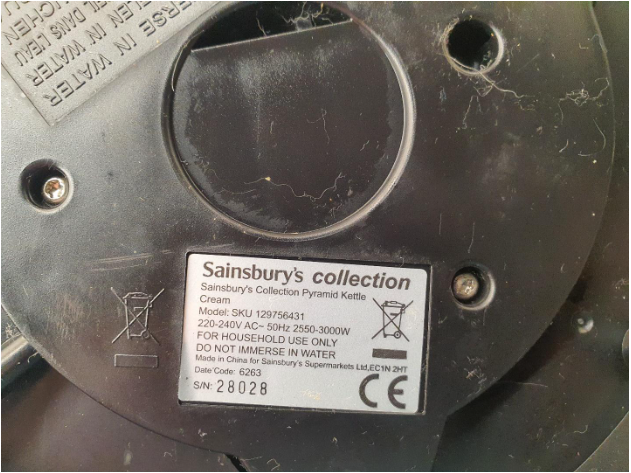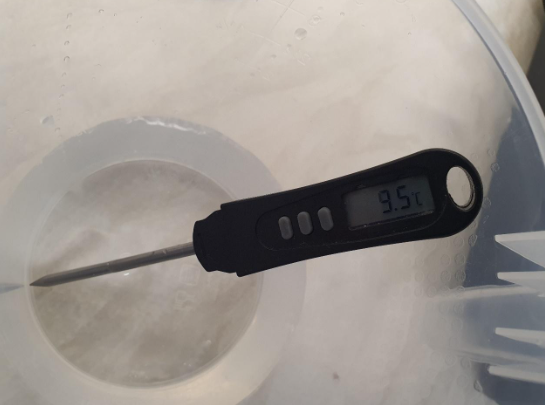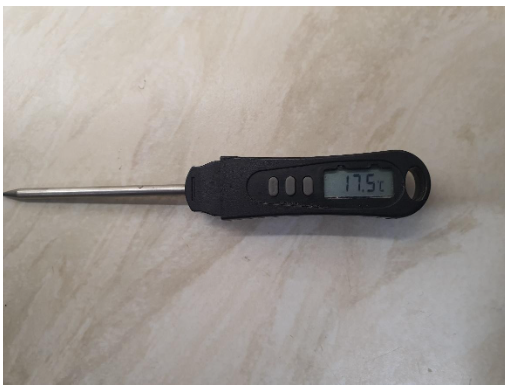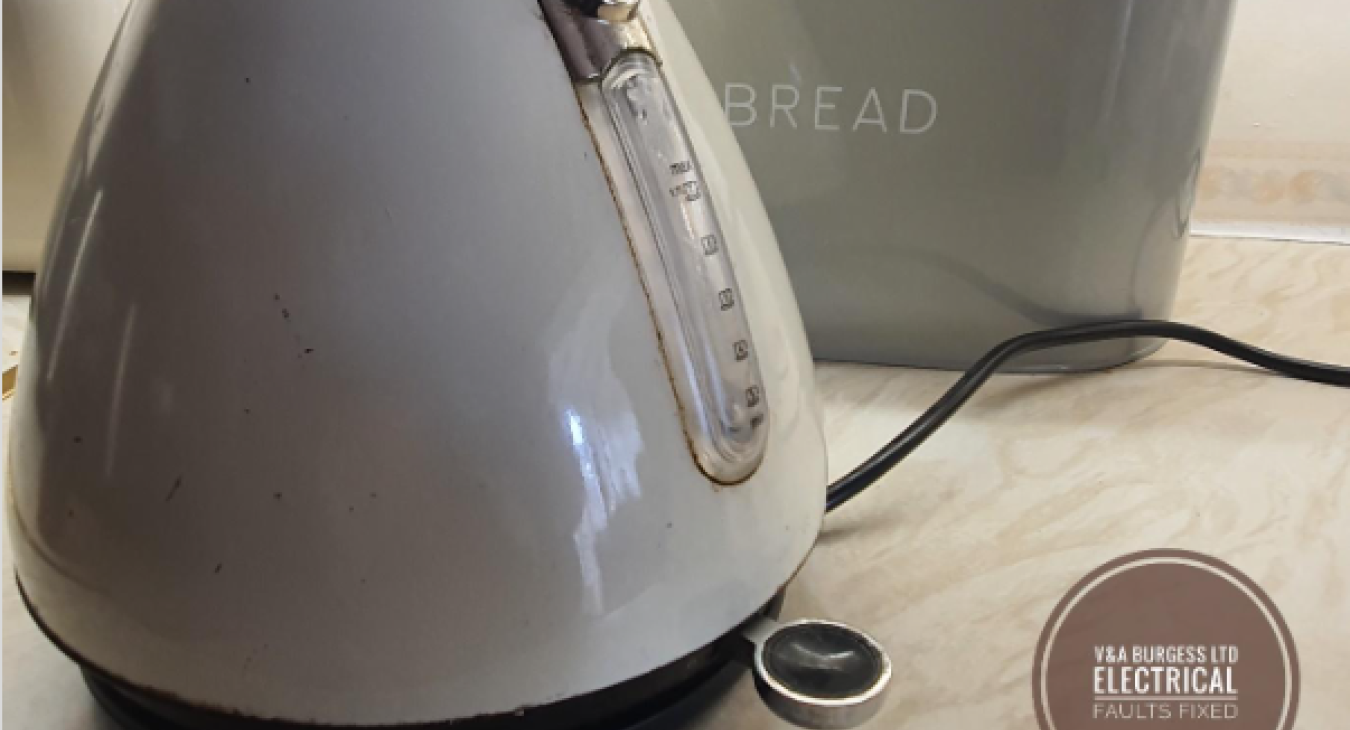How Much Does It Cost to Boil a Kettle Full of Water? - Electrical Faults Fixed
The humble kettle is a staple in modern kitchens across the UK and Europe, used daily for hot beverages, cooking, and more. But with rising energy prices and concerns over energy bills, many people are asking, how expensive is it to run a kettle? Drawing from my experience as a professional electrician and electrical tutor, I’ll break down the costs and offer practical advice to help you save money. A full kettle typically costs £0.05 or 5 pence to boil. I actually did an experiment with a typical kettle under typical conditions!
Table of Contents
- How Much Does It Cost to Boil Water for One Cup of Tea?
- How Much Does It Cost to Boil a Full Kettle?
- Are Some Kettles More Energy Efficient?
- What is the Monthly Cost of Using a Kettle?
- Are There Cheaper Alternatives?
- Energy-Saving Tips for Kettle Use
- Actual Research Carried Out Using my Own Kettle
- What can affect the costs?
- Frequently Asked Questions
- Conclusion
1) How Much Does It Cost to Boil Water for One Cup of Tea?
As someone who’s studied energy usage in home appliances, I can tell you that the cost of boiling water for a single cup of tea is surprisingly low. To estimate the cost, we need to consider the kettle’s power rating, the amount of water boiled, and the current price of electricity.
- Average kettle power rating: Most kettles in the UK have a power rating between 2 and 3 kW. For this calculation, we’ll use 2.5 kW as an example.
- Time to boil one cup (300ml): On average, it takes about 1 minute.
- Electricity cost per kWh: At the current price cap rate, the average cost of electricity in the UK is 26p per kWh.
Calculation: A 2.5 kW kettle uses 2.5 kWh per hour. To boil one cup of water in one minute:
In this case, boiling a cup of water costs just over 1p, but the total cost can vary depending on the kettle’s efficiency and whether you’re boiling more water than necessary.

(Photo: at 240 volts, this kettle consumes 3000 watts)
Back to top2) How Much Does It Cost to Boil a Full Kettle?
The cost of boiling a full kettle depends on its size and power rating. For instance, an average kettle holds 1.5 litres of water. If it takes about 4 minutes to reach boiling point, the energy usage can be calculated as follows:
Boiling a full kettle costs around 4 to 5 pence. However, using more water than you need contributes to energy waste, increasing both your electricity bill and your environmental impact.
Usually, electric kettle use is not too expensive, other household appliances can cost far more to run. They are often not more powerful than a kettle but are in use for far longer thereby using more power.
Back to top3) Are Some Kettles More Energy Efficient?
Not all kettles are created equal when it comes to energy efficiency. In my experience, the energy consumption of your kettle can vary based on several factors:
- Heating element efficiency: Modern electric kettles with concealed heating elements and temperature control use less energy.
- Size of your kettle: Larger kettles take longer to boil, so using a smaller, efficient kettle for single cups can reduce energy usage.
- Insulation: Kettles with poor insulation lose heat during boiling, requiring more energy.
- Smart features: Some kettles offer “smart boil” settings to heat water to a specific temperature, which saves energy compared to boiling water to 100°C unnecessarily.
The Energy Saving Trust recommends choosing an energy-efficient kettle and only boiling the exact amount of water needed to minimize energy waste.
Back to top4) What is the Monthly Cost of Using a Kettle?
For a busy household making multiple hot drinks or using the kettle to prepare hot food daily, the monthly cost can add up. Let’s assume the following:
- The kettle is used 10 times a day to boil 1 litre of water.
- Each boil costs approximately 3p (based on 0.115 kWh per litre).
Over 30 days:
- A household could spend around £9 per month on kettle use. Reducing unnecessary boils or switching to more efficient kettles can lower this cost.
5) Are There Cheaper Alternatives?
If you’re concerned about your electricity bill, there are alternatives to using a kettle:
- Boiling water taps: These taps provide instant hot water but have high upfront costs and ongoing energy usage.
- Gas stove or hob: While gas is generally cheaper than electricity per unit of energy, using a gas hob to boil water is less efficient and can take longer.
- Electric hobs: Similar to gas, electric hobs are slower and use more energy compared to kettles.
- Microwaves: Microwaves can be used to heat a single cup of water, but they’re often less efficient than modern kettles.
For most households, an energy-efficient kettle remains the cheapest way to boil water for hot beverages.
6) Energy-Saving Tips for Kettle Use
To reduce energy waste and keep costs low, follow these tips:
- Boil less water: Only heat the amount of water you need for your hot drink or cooking.
- Upgrade to a modern kettle: New kettles with better insulation and precise temperature controls use less energy.
- Regular maintenance: Hard water can cause limescale buildup, which affects the kettle’s efficiency. Descale your kettle regularly to maintain performance.
- Avoid excess boiling: Re-boiling water repeatedly uses more energy and shortens the kettle’s lifespan.
7) Actual Research Carried Out Using my Own Kettle
For the purpose of creating this table I have used my own kettle to boil water for 1, 3 and 6 cups of tea or coffee. The kettle was a 2-year-old appliance, has had regular use and is in reasonable condition for its age.

(PHOTO: Water at 9.5 Degrees Centigrade)
It is a typical household kettle that you would find in any home in the UK or Europe. The experiment was not carried out under laboratory conditions and I am by no means a Scientist! Here are some things you may want to know:
- I assumed we needed 300ml for each reasonable sized cup of tea or coffee
- In between each test, the kettle was cooled down and allowed to fully cool before commencing the next test
- The kettle was completely emptied in between each test
- The water was measured using a standard kitchen measuring jug by eye
- The test began when the kettle was turned on and stopped when it clicked off
- The power of the kettle was 3000 watts at 240 volts which is typically our voltage
- The temperature of the water in the test was around 9.5 C on average
- The room temperature was around 17.5 C at the time of testing
- Costs have been rounded to the nearest penny
The following results may be incredibly interesting or incredibly boring but nevertheless, here they are:
| Number of Cups at 300ml | Time Taken | Cost at 26p per Kw/h |
| 1 | 52 Seconds | £0.01 |
| 3 | 2 Minutes 5 Seconds | £0.03 |
| 6 | 3 minutes 53 seconds | £0.05 |
8) What can affect the costs?
The starting temperature of the water can affect water boiling costs, ambient temperatures in the room can have an effect on boiling times.

The colder the water the more energy will be required for the kettle to reach boiling point. The temperature of the surrounding environment will have a minimal effect on the boiling time but can still affect it nonetheless. The internal condition of the kettle can have an impact on boiling times if there is significant scale for example. The altitude of your home will have a very small effect on boiling times as well.
Back to top9) Frequently Asked Questions
9.1) Do kettles use a lot of electricity?
Kettles can use a significant amount of electricity due to their high-power rating (2 to 3 kW). However, because they boil water quickly, their overall energy consumption is relatively low. Boiling a single cup of water costs just over 1p.
9.2) What is the cheapest way to boil water?
Using an energy-efficient kettle and boiling only the amount of water you need is the cheapest method. Avoid overfilling the kettle, as this wastes energy.
9.3) Which appliances use the most electricity?
In a typical home, heating appliances like ovens, dryers, and space heaters consume the most electricity. The kettle, while powerful, uses less energy overall due to its short usage time. Any appliance that uses a heating element will be more expensive to run than, light bulbs, for example.
9.4) Do one-cup kettles save money?
Yes, one-cup kettles are designed to boil just enough water for a single hot drink. This eliminates energy waste and can save money over time, especially for individuals who only need small amounts of boiling water.
Back to top10) Conclusion
How expensive is it to run a kettle? While boiling a single cup of tea costs just over 1p, the costs can add up for frequent or inefficient use. By choosing an efficient kettle, using only the amount of water you need, and maintaining your appliance, you can reduce your energy usage and keep your energy bills in check. With energy prices rising, every small saving helps in the long run. As someone who’s worked with electrical systems for years, I can confidently say that the kettle is one of the most convenient and cost-effective ways to boil water—just use it wisely!
Back to top
Read more articles
- Log in to post comments


